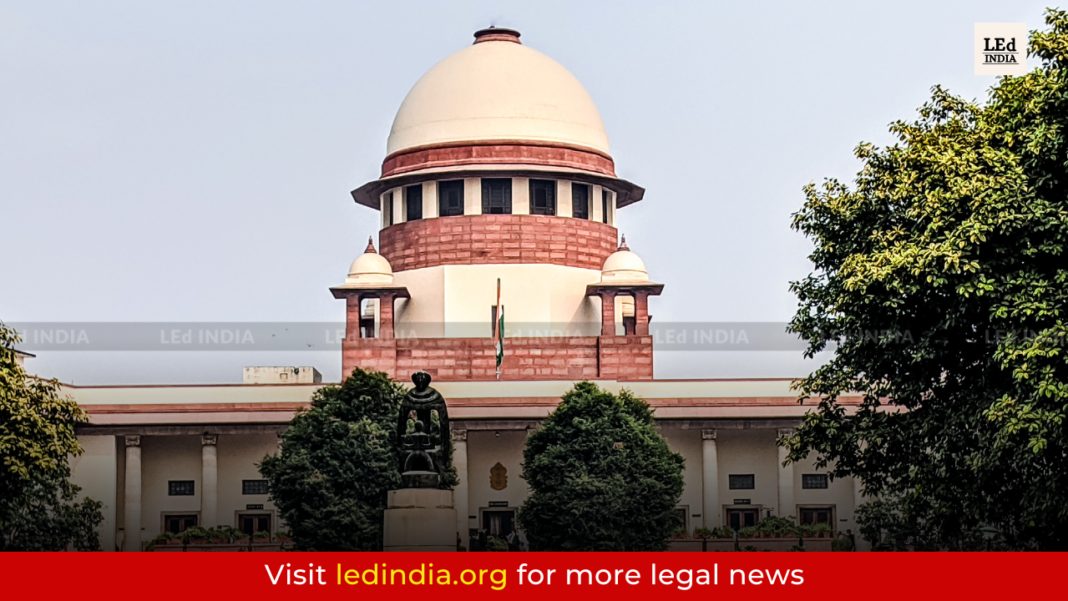The recent Supreme Court ruling in the case of Dilip Kumar vs. Brajraj Shrivastava has set a precedent on the interpretation of key provisions in the Criminal Procedure Code. The case involved the dismissal of a complaint against Brajraj Shrivastava, highlighting the balance between justice and the rights of the accused. The court upheld the need for thorough inquiry before dismissing serious allegations, emphasizing due process and equitable justice. Legal experts commend the ruling for its meticulous analysis and expect it to influence similar cases, promoting a fairer criminal justice system.
In a recent legal development that has captured the attention of the nation, the Supreme Court of India has breathed new life into a complaint filed against Brajraj Shrivastava, with its ruling setting a precedent on the interpretation of crucial provisions of the Criminal Procedure Code (Cr.P.C). The case, Dilip Kumar vs. Brajraj Shrivastava, has raised pertinent questions about the process of inquiry and dismissal of complaints, shedding light on the delicate balance between justice and the rights of the accused.
The crux of the matter lies in a complaint lodged before a Magistrate, accusing Brajraj Shrivastava of multiple offenses under various sections of the Indian Penal Code, including Sections 323 (voluntarily causing hurt), 342 (wrongful confinement), 500 (defamation), 504 (intentional insult), 506 (criminal intimidation), and 295-298 (deliberate and malicious acts to outrage religious feelings). The Magistrate initially ordered an inquiry under Section 202(1) of the Cr.P.C, which empowers the court to postpone the issuance of process if it deems it necessary to inquire into the case before taking further action.
Subsequently, the Magistrate proceeded to record the statement of only the complainant and, invoking Section 203 of the Cr.P.C, dismissed the complaint. This section empowers the Magistrate to dismiss a complaint if it appears to be frivolous, vexatious, or devoid of merit. However, this dismissal prompted a challenge in the High Court, leading to a renewed legal battle.
The High Court, upon examining the grounds of dismissal and considering the intricacies of Section 201(1) of the Cr.P.C, concluded that the dismissal was premature and unjustified. This section provides for the Magistrate’s power to post facto consideration of the evidence after inquiry, thereby safeguarding against hasty dismissals that may hinder the search for truth.
In its landmark decision, the Supreme Court upheld the High Court’s interpretation of the relevant provisions, determining that the Magistrate’s dismissal of the complaint under Section 203 was hasty and did not fully adhere to the procedural safeguards provided under Section 201(1). The apex court emphasized that a comprehensive inquiry must be conducted before dismissing a complaint, especially one that involves serious allegations, as in the present case.
This verdict carries significant implications for the course of justice in India. It underscores the importance of due process and the need to ensure a fair and thorough examination of complaints before they are dismissed. The ruling also reaffirms the principle that even in the early stages of a case, the interests of justice must be upheld and the rights of all parties involved must be respected.
Legal experts and scholars have commended the Supreme Court for its meticulous analysis of the Cr.P.C provisions and its emphasis on protecting the rights of complainants while also upholding the accused’s right to a fair process. This ruling is expected to influence the approach taken by lower courts in similar cases, promoting a more balanced and equitable criminal justice system.




